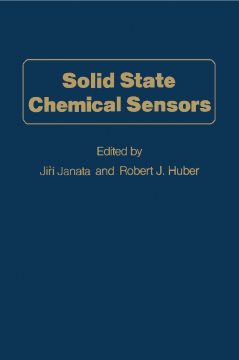
Additional Information
Book Details
Abstract
Solid State Chemical Sensors reviews the basic chemical and physical principles involved in the construction and operation of solid state sensors. A major portion of the book is devoted to explanation of the basic mechanism of operation and the many actual and potential applications of field effect transistors for gas and solution sensing.
This text is comprised of four chapters; the first of which describes the basics of device fabrication. Emphasis is placed on the physical description of semiconductor devices with catalytic metal gates, along with their drawbacks and their promise. The behavior of hydrogen in the Pd-SiO2 system is also considered, and some applications of hydrogen-sensitive transistors, such as smoke detection and biochemical reaction monitoring, are described. The second chapter focuses on chemically sensitive field effect transistors and their thermodynamics, while the third chapter explains the general fabrication procedure for solid state chemical sensors. The final chapter introduces the reader to piezoelectric and pyroelectric chemical sensors, paying particular attention to the sensor nature of piezoelectricity, the piezoelectric gravimetric sensor, and pyroelectric gas analysis.
This book is intended to assist electrical engineers in understanding the chemistry involved in the construction and operation of solid state sensors and to educate chemists in solid state science.
